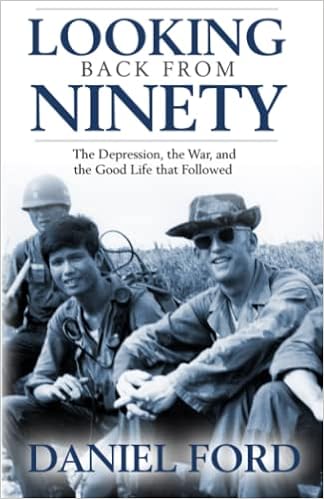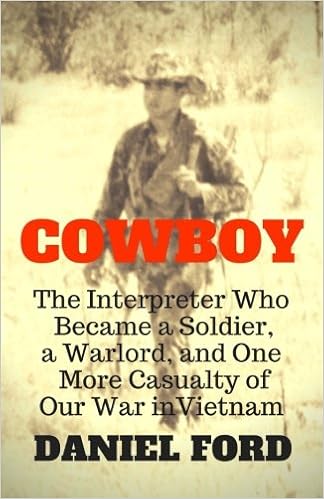Manchester, 1954
We were probably introduced in Caf, the cavernous student cafeteria where we assembled at ten o'clock for cigarettes and coffee, though I don't remember our meeting. I was one of a very few Americans at the redbrick University of Manchester, a Fulbright scholar dismayed to learn that Modern European History, in the English version, had ended in 1898, toward the end of Victoria's reign. (It often seemed that everything in Manchester had come to a close with the Widow at Windsor. Picadilly Gardens uptown, where the 2A bus originated, was overseen by a grand gray statue of the seated queen, holding the world in her hand like an anarchist's bomb. A block or two distant lay Victoria Street, Victoria Square, Victoria Station, and the Victoria and Albert Hotel. And now I find that in 1954 the formal name of my institution of higher learning was Victoria University of Manchester.) Worse, the professor leading the seminar on Edmund Burke believed that a proper reading list comprised the complete writings of my favorite philosopher-politician, and these were not insubstantial. Further, our classrooms weren't heated, at least not by American standards. I was always cold in England, but never colder than in class. In the Burke seminar, we lads developed the habit of leaving the table and perching instead on the radiators beneath the tall, drafty windows, streaked on the outside with sooty raindrops, for the sake of the tepid warmth that gurgled through them from time to time.
By November, I had stopped going to class. Instead I worked on a short novel whose central character was named--improbably but I suppose inevitably--Stephen Faust, in honor of the young hero of James Joyce's imagination and Goethe's elderly alchemist who sold his soul to the devil in exchange for unbridled experience. I read both Ulysses and Faust that year--read voraciously, whatever I could find in a Penguin paperback for two shillings sixpence the copy. I also wrote for the student newspaper, where Frank the editor had assured me that it was quite all right, perhaps even desirable, if I retained American spelling and usage in my stories. The English were much puzzled by my way of rendering their language. I was variously asked, "Do all Yanks speak as strangely as you?" and "When Yanks put on a play of Shakespeare, do you do it with an American accent?" I also drank great quantities of room-temperature beer, attended many French and Italian movies dubbed into English, joined the Student Union debates on one side or another--it didn't matter; the debate was the thing--and drank coffee at Caf at ten o'clock each morning. The coffee was dreary, like most things in postwar England: slippery stuff, no doubt adulterated with chicory. (I am being strictly correct when I say England. In 1954, Britain was merely the island comprising the nations of England, Scotland, Wales, and to a lesser extent Cornwell. As for the now popular United Kingdom, that was just a theoretical construct, to enable London to lay claim to Ulster, Antrim, Down, Fermanagh, Tyrone, and Londonderry, the six Irish counties that constituted its last colony, as my father never tired of reminding me in his letters, though he always shortened the last of them to Derry.)
Somewhere in that cavernous cafeteria there would be a table of journalists manque, most of us drawn from the student newspaper. The group always included the tall Liverpudlian and veteran of the Royal Air Force, Malcolm Hopson, with his mop of black hair and his quiet girlfriend, Sheila, who I never remember speaking. She loved Malcolm and put up with the rest of us because we were his friends. Less often, the editor was there as well. Frank was an army veteran who had served in the Gloucestershire Regiment during the Korean War. I don't remember his last name, though we were pals enough to have hiked through the Lake District together, staying at a youth hostel in an astonishingly deep fall of snow. On our circuitous way back to Manchester, we stopped overnight at his home. Frank gave me the options of sleeping on the floor or sharing the double bed with him; I took the bed, and soon enough I realized that he was massaging my right foot with both of his. "Bloody hell, Frank, what are you doing?" "Oh bloody hell," he said himself. "I thought it was the hot water bottle!" I thought no more about it, for he'd been with Glosters at the Imjin River, when they held the line against a mass of Chinese troops and saved Seoul from recapture. I couldn't reconcile heroism with the homosexuals I had known at the University of New Hampshire, all of them forthrightly effeminate. Anyhow, there were plenty of effeminate lads at the Hotel Wilmslow, and to a man--or boy--they were intensely interested in my seminars on sex and the single woman.
Oh, and usually Antony Bolcover was at Caf, if I spell his name correctly, a Jewish lad who reminded me of the privileged Oxonians in Brideshead Revisited. The following July I would be hitchhiking north from Bellizona, and making heavy weather of it--unlike the Italians, the Swiss had not yet grasped the concept of sharing their automobiles with young vagabonds--when a Ford Anglia stopped a little distance down the road. The driver stuck his head out the window and said in a wondering voice: "Dan?" He was Antony Bolcover, on a European tour with some friends, none of whom I'd met before. They gave me a lift over the St. Gotthard Pass, on whose Christmas-candy road the Ford's engine vapor-locked, so we had to turn the litle car around and let it roll back toward Italy in gear until the engine farted into life again. We got out at the height-of-land to take one another's photograph: Antony's portrait of me shows a very serious young man with a high forehead and a handsome beard, streaked with blond from the Italian sun. I rode with them to Luzern, where they dropped me at the youth hostel.
I also have a photo of the gang in Caf: heavy-faced Antony, bushy-haired Malcolm, quiet Sheila, and a bright lad named Ian who lived in the same digs as I did, on Mauldeth Road in the suburb of Withington. This was a four-penny ride on the upper deck of the 2A bus, which ran from London Road railway station, past the gothic University buildings fronting on Oxford Road--a scaled-down House of Parliament, without the gold leaf and with oddly flat-roofed towers, a bit like the Chateau Chenonceau--and down Wilmslow Road to Withington, where I dined too often on fish and chips served in a cone of yesterday's newspaper. "Food for the body and food for the mind!" the vendor cried, handing me sixpence worth of fat-fried codfish, white, flaky, and steaming, together with fourpence worth of fat-fried potato slices, which the English called chips. The chips were heavily salted and flavored with vinegar which the vendor liberally dispensed from a round-bottomed bottle, like a barber with his hair tonic.
So an evening out in Withington cost tenpence for dinner and sixpence for a seat in the front stalls of the Scala cinema, for a grand total of nineteen U.S. cents at the exchange rate then prevailing. Cheaper, indeed, to go out for dinner and a movie than to stay home and feed shillings into the gas meter.
The Scala was supposed to be one of the oldest cinemas in England. The building was on a corner and half-timbered behind the marquee, which generally promised Dirk Bogard as a war hero or Alec Guinness dressed up as a woman, transvetism being a rich vein of English humor. Ah, the glow of the projection beam through the shifting veil of cigarette smoke! At the Scala, or indeed any English cinema, one was constantly reminded that a movie was in progress, as we smoked the skinny cigarettes that were jocularly known as coffin nails: each seat was supplied with a tiny ashtray, on the left armrest. In later years the Scala was chopped into three smaller theaters under the name of Cine City, and smoking no doubt was banned, while our fish and chips shop became an Indian restaurant called the Moon. And in this century, both succumbed to more sophisticated competition--a multiplex, a McDonald's--and were boarded up.
Cigarette smoke was the least of our pollutants. Though Ted and I had a gas fire in our room on Mauldeth Road, most of Manchester depended on coal for its heat, and the coal smoke mixed with the fog to produce what were known as "pea soupers." On one occasion, walking from our digs to Withington, the fog was so thick that I could not see the sidewalk beneath me, and I missed the curb and fell into the street.
Each morning I bought the Manchester Guardian, as the newspaper was then known, and wrote the previous day's statistics in my diary. Temperature: 55 high, 40 low. Rain: trace. Sunshine: nil.
Ian's room was on the second story front of Number Two, Mauldeth Road West; he shared it with a room-mate I didn't know. My room-mate was an undergraduate majoring in the sciences; we lived at the back of the house, on the third story. Ted was from Yorkshire, and he spiced my vocabulary with sayings like "N'er shed a clout till May is out" and "If once naught's naught, twice naught must be sommat." We'd met at the Wilmslow Hotel, a rooming house where I had lodged during the autumn term, two meals a day and three on Sunday, consisting mostly of brussels sprouts, mashed potatoes, and pot roast, with a pastry smothered in a sweet white semi-liquid called custard. The clientele was entirely male, and all the lads were virgins except for me. I felt quite the Cary Grant at the Wilmslow Hotel.
If I'm not mistaken, Ted later emigrated to Rhodesia. I recognized his face in a Time magazine photo of white settlers lining up to buy guns, as Rhodesia began a painful transformation into Zimbabwe. I hope that turned out all right for you, Ted. (Oh, what was your last name?)
Back to Caf! Unlike most spaces in Manchester, it was well heated, mostly no doubt by the body heat of several hundred undergraduates, and the lads at table would often grow uncomfortable in their blazers or tweed jackets, ties, and long university scarves, which tradition required to be one's only garments for the English winter. English shirts, by the way, had detachable collars and cuffs, so that one could get a full week's service out of one garment. And the undershirts were sleeveless. Strangely enough, I don't remember that the lads smelled. Perhaps the temperature never climbed high enough.
It could be warm in Caf, however--probably that's why we gravitated to it. One morning Ian joked that he was warm enough that he might take off his blazer. This met with no protest, so, looking uneasily around the table, Ian actually did shed the jacket, and sat there rather proud in his shirtsleeves. (Off-the-rack English shirts were sold only by neck size, with sleeves that were too long; the excess was taken up by a sort of garter worn around one's bicep.) One or two others followed his good example, but not Antony Bolcover, in whom gentility ran strong. Antony was also, I think, one of the few students at Manchester not receiving a government grant of forty pounds a month. My own stipend as a Fulbright Fellow was fifty pounds, so for the first time in my life I was just about the wealthiest person of my acquaintance. Fifty quid ($140) bought more beer than a twenty-two-year old could drink, if he knew what was good for him--but who does know what's good for him, at twenty-two? Blue skies! -- Dan Ford
Labels: work in progress











0 Comments:
Post a Comment
<< Home